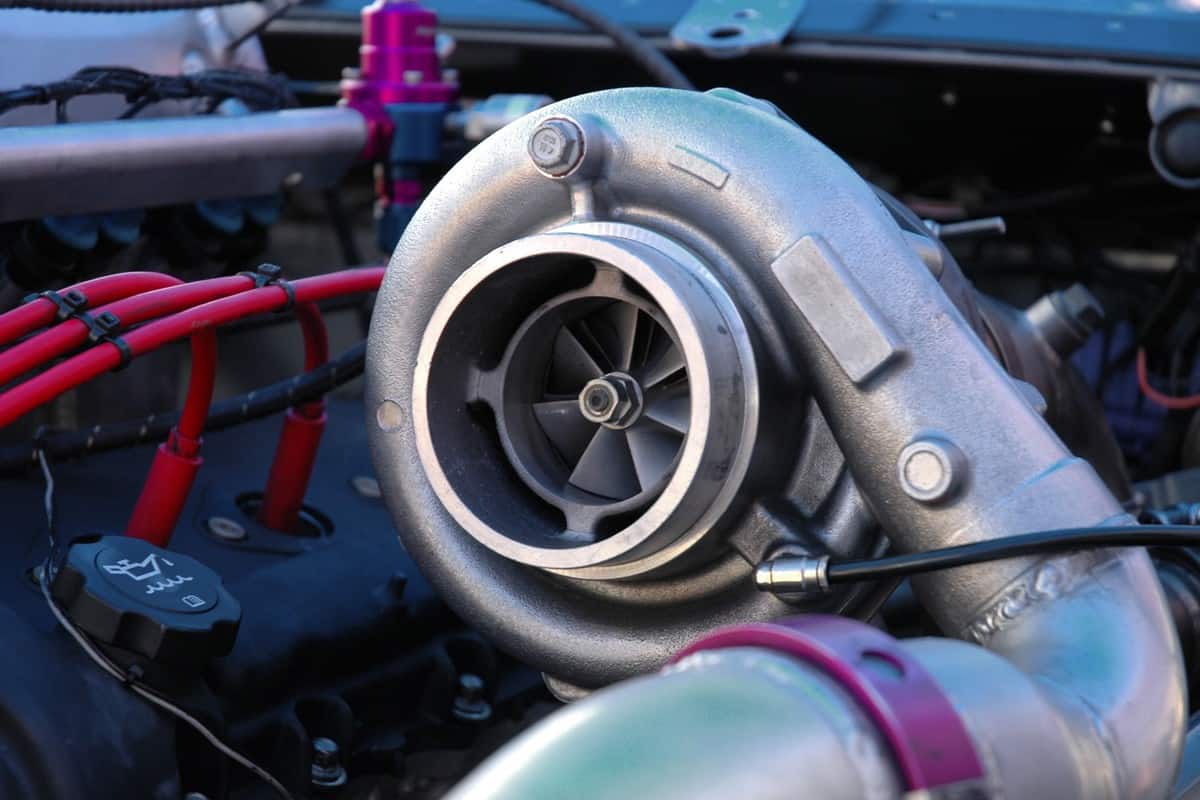Chevrolet trucks are one of the best-selling trucks in the US, but do they have flex fuel? Before you buy a Chevrolet truck, you may want to know if it can use ethanol-based fuel. So let's take a look below.
Chevrolet trucks, including the Silverado, Silverado HD, Tahoe, and Suburban, can use E85 fuel without any modifications. The only thing you'll need to do is make sure the station you're fueling up at offers it.
There are some benefits of using flex-fuel in your Chevy truck. In this article, we will discuss these benefits to help you decide whether to switch. In addition, we will answer other frequently asked questions about flex fuels and their pros and cons, so read on!

What are the benefits of using flex-fuel in Chevy trucks?
Before we get into the benefits of flex-fuel in Chevy trucks, including the Silverado series, Tahoe, and Suburban, let's discuss what it is. Flex-fuel is a blend of gasoline and ethanol usually made up of 85% ethanol and 15% gasoline. The ethanol can be made from corn, sugarcane, or cellulosic biomass.

Now that we know a little more about flex-fuel, let's look at some of the benefits of using it in your Chevy truck.
First and foremost, by using flex-fuel, you're doing your part to reduce America's dependence on oil. This is important because oil is a finite resource, and it's not renewable. So when we use less oil, we're helping to preserve this valuable resource for future generations.
Second, flex-fuel emits fewer greenhouse gases than regular gasoline. Greenhouse gases are responsible for global warming, so by using flex-fuel, you're helping to reduce your carbon footprint.
Finally, flex-fuel is cheaper than gasoline. So you'll save money at the pump with every gallon you fill-up.

Cons of using flex-fuel
Like anything, there are pros and cons. Here are a few of the cons of using flex-fuel in your Chevy truck:
Not at every gas station
The availability of flex-fuel varies from station to station. So you may have to drive a little further to find one that offers it.
Reduced fuel mileage
Since flex-fuel is a blend of gasoline and ethanol, your truck may not get the same fuel mileage when using it compared to regular gasoline. This can be a significant downside if you drive a truck.
Possible engine damage
Flex-fuels are notorious for absorbing dirt. This can potentially damage the engine if not cleaned regularly.
Now that we've looked at the pros and cons of flex-fuel, let's answer some other frequently asked questions about it.
What are the differences between E85, gasoline, and diesel fuel?
E85 is a blend of gasoline and ethanol usually made up of 85% ethanol and 15% gasoline. It can be made from corn, sugarcane, or cellulosic biomass.
Gasoline is a fuel made up of crude oil used in cars and trucks.
Diesel fuel is a fuel made up of diesel oil and is thicker than gasoline and evaporates slower. It is used in cars, trucks, and trains.
Each fuel type serves a different purpose and has its pros and cons. Therefore, it's essential to know which type of fuel your vehicle takes before filling it up.

Can I use E85 in my diesel truck?
You can't use E85 in diesel trucks, and if you do, it will damage the engine. In addition, it could ruin the fuel pump and other components. If you accidentally put E85 in your diesel truck, you should stop driving it and have the engine checked out as soon as possible.
Does E85 make more power?
E85 has a faster burning time giving it higher cylinder pressure. As a result, it will increase horsepower and torque by as much as 20%. Some people who are looking to increase their performance will use E85 to get these benefits.
Why is E85 suitable for turbo?
E85 is good for turbo because its ethanol absorbs more air than gasoline. As a result, you can run a higher boost pressure without risking engine damage when this happens. This will give your turbocharged vehicle more power and better performance.
For example, if you own a high-powered Mitsubishi Evolution or Subaru WRX STI and you're looking to get more power out of it, using E85 can be a great way to do that.
If you don't use E85, it is good to run 91 or 93 octanes for your car. The reason turbos need this higher octane fuel is that knocking will occur when the detonation of the air/fuel mixture exceeds the octane rating of the fuel.

Does E85 shorten engine life?
The jury is still out on this one. Some people say that using E85 can shorten the life of your engine, while others disagree. Therefore, it's important to do your own research on this topic and come to your own conclusions.
However, it is known that E85 has a corrosive effect on fuel system components made of magnesium, aluminum, and rubber. With that being said, if E85 is put in older vehicles that will not have the latest fuel system components, it could potentially damage them.
Is E85 more flammable?
Yes, E85 is more flammable than gasoline. That's why it's important to take all the necessary precautions when fueling up, such as making sure your vehicle is in park and that the nozzle is locked into the filler neck.
When fueling up, always keep an eye on the pump and make sure no sparks or flames are coming from the nozzle. Then, stop fueling and let the fuel tank cool down before trying again if you see any sparks.
Can you switch between E85 and gasoline?
Yes, you can switch between E85 and gasoline. However, you should only do this if your vehicle is specifically made to run on both types of fuel. If you don't have a flex-fuel vehicle, it's not recommended that you switch between them.
Switching back and forth can cause damage to your engine and may void your warranty.
When should I use E85?
E85 should be used when you need the extra power. For example, if you have a turbocharged vehicle, E85 is a good choice. In addition, E85 is also a good option for vehicles that need higher octane fuel, such as high-performance cars or trucks.
However, if your vehicle doesn't require the higher octane fuel, using E85 may not be the best idea.
If you want to avoid emitting more pollutants into the air, then using E85 is a good way to do that. E85 emits fewer hydrocarbons, carbon monoxide, and nitrogen oxides than gasoline.
What color is an E85 fuel pump?
E85 fuel pumps are yellow, signifying that the fuel is corn-based ethanol. So when fueling up, it's important to make sure you are using a pump that says E85 on it. Diesel will have a green pump, and be sure not to confuse it.

Can I put E85 on my motorcycle?
E85 should not be used in motorcycles. The reason is that motorcycles run at a much higher RPM than cars, and the ethanol in E85 can cause damage to the engine. In addition, using E85 will void the warranty on your motorcycle.
There are E85 conversion kits for motorcycles if you want to switch to this type of fuel, but it is not recommended that you do so.
Put diesel in my gas truck - What to do?
If you put diesel in your gas truck, you need to pull over and turn the truck off immediately. If you don't, you can damage the engine. Once the truck is turned off, take the key out of the ignition and call a tow truck to take it to a mechanic.
Refrain from trying to start the truck. It's also important to note that it could void the warranty if you put diesel in your gas truck.
The mechanic will need to flush the diesel fuel out of the truck's system and replace all of the contaminated fuel with new gasoline. This process can be expensive, so it's best to avoid doing it first.
Final Thoughts

As you can see, there are pros and cons to using flex-fuel in Chevy trucks and other vehicles. Therefore, it's important to weigh the pros and cons and come to your own conclusions about whether or not using E85 is right for you.
Always take the necessary precautions when fueling up, and if you're ever in doubt, don't hesitate to ask a mechanic or check your owner's manual.
Thanks for reading! Here are some more articles that you may be interested in:
Chevrolet Silverado Trim Levels Explained
